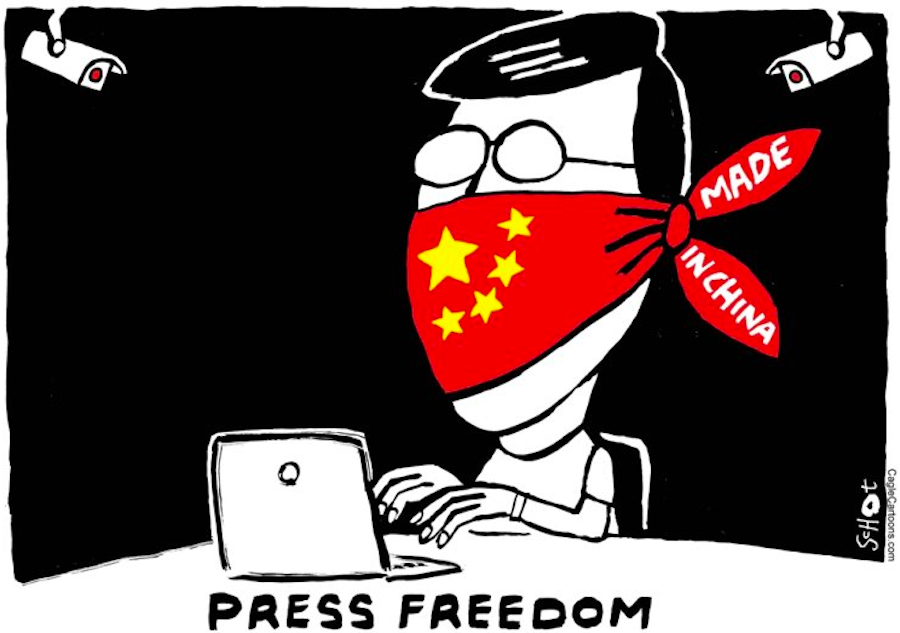TRIN-GYI-PHO-NYA: TIBET’S ENVIRONMENT AND DEVELOPMENT DIGEST
By Tashi Tsering*
Tibet is virgin territory for western mining companies. So far mostly small private mining activities have been able to operate on the Tibetan Plateau. This has been mainly due to lack of capital, technology, transportation infrastructure and political confidence to open Tibet to western companies. However, circumstances have now changed. China has become a booming economic power, western companies are issued business contracts to bring in their capital and technical expertise, and there is the ideal transportation medium – the recently completed Golmud-Lhasa railway. These changing circumstances are creating a rush among Chinese and western companies to exploit Tibet’s minerals, threatening to cause large-scale environmental destruction reminiscent of the indiscriminate logging of Tibet’s forests from the 1960s-1990s.
Unfortunately, there is no stopping the Chinese government or its companies from executing their resource extraction plans inside Tibet. Local community leaders must fast educate themselves about this impending challenge and protect their legitimate rights granted by the Chinese Constitution before it is too late. They must partner with concerned authorities and members of civil society and the media to raise public awareness of the environmental and social costs of mining and to ensure compliance of Chinas domestic laws, such as the 2003 Environment Impact Assessment Law, in the implementation of these projects.
Whether western companies must be encouraged or discouraged from this gold rush is a hot topic these days as western companies are beginning to operate mines inside Tibet. The Guidelines for International Development Projects and Sustainable Investment in Tibet articulated by the Central Tibetan Administration in Dharamsala, suggests that Tibetans do not want western mining companies. In this debate, Tibetans must be clear that mining is not development. It is resource extraction. In addition to the loss of precious minerals, the environmental costs of mining are huge no matter how carefully and scientifically the mining operations are undertaken. It doesn’t matter if the glass is broken with a hammer or hands in gloves, a glass broken is a glass broken. If western investment is unopposed, mining in Tibet will only become larger in the scope of its extraction and environmental degradation, through the actions of both Chinese and western companies.
Modern gold mining that western companies are introducing in Tibet, for example, is a machine-, chemical- and water-intensive endeavor in which hundreds of tons of rock are moved and processed for every ounce of gold extracted. An estimated 200 tons of rock yield 1 ounce of gold, 80% of which are used for nonessential applications such as jewelry. Since cyanide is the chemical of choice for gold mining industry — one tablespoon of a 2% cyanide solution is enough to kill a human being — the downstream environmental risks cannot be overemphasized especially because mines of interest to western companies are all situated near rivers. Additionally, the nature of mining activity is such that it will provide absolutely nothing to the local Tibetan communities other than maybe some unskilled job opportunities, often in risky and toxic environments. And as larger areas of Tibet are mined, more communities will be forcefully relocated.
If western companies are to be discouraged from making profit by plundering and fueling Tibet’s problems, the time to act is now. Currently, there are only a few companies involved. They are mostly Canadian companies and they are all in the beginning phases of operation. If unopposed, these projects will become fully operational and expand in size, attracting many more companies into the gold rush. The Vancouver based Continental Minerals, for example, is currently on a roll to raise more money to fully exploit its 12 square kilometer Shenthongmon gold mine near Shigatse in central Tibet, and acquire interest in another 109 square kilometers of land nearby. Although the fate of the Shenthongmon mountains are doomed, since Chinese companies will take over operation even if Continental leaves Tibet, a campaign against Continental and other western companies operating in Tibet is still worthwhile to stop them from expanding their operations and to discourage other companies from entering a politically disputed territory that is Tibet.
[*Tashi Tsering is the editor of Trin-Gyi-Pho-Nya]









